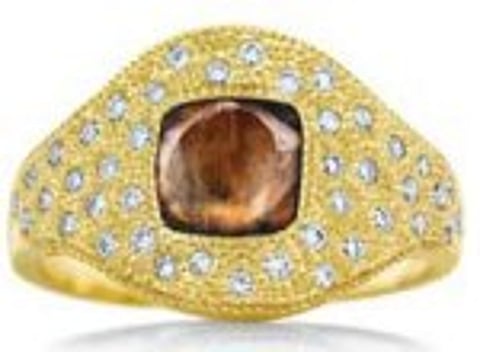

Share in Global Business
It might be interesting to recall that until 1995 De Beers accounted for nearly 75-80 per cent share of the global diamond business. Thereafter its share began to shrink, and is now estimated to be around 35 per cent. Even so, De Beers remains the leading producer of rough diamonds in the world.
Operations
De Beers remains the world’s leading diamond company. With its joint venture partners it operates in 20 countries across employing 16,000 people. The company produces around 35 per cent of the world’s rough diamonds by value from its mines in South Africa, Botswana, Namibia and Canada. In Botswana and Namibia, it mines diamonds through joint ventures with the governments of those countries. Besides, it has 74 per cent shareholding in South Africa based Consolidated Mines Ltd., with a broad based black empowerment consortium holding the balance. It has two wholly owned diamond mines in Canada. De Beers has been marketing is rough diamond through its Diamond Trading Company (DTC), which sells rough diamonds to its approved buyers, known as sightholders.
Impact of Recession
Until the recession that began in late 2008, the global diamond business was rising, and with it diamond production by De Beers as well as by others, rose too. However, the recession badly affected the diamond business worldwide. A number of manufacturing units were compelled to down their shutters or slash production there were few takers for rough diamonds.
De Beers’ Strategy
In this situation, De Beers closed down some of its mines, drastically curtailing its overall production. A few other producers were also obliged to take similar measures, except the Russian producer Alrosa which preferred to maintain production but sell it mostly to the state stockpile, instead of to the market.
Setback
The impact of this policy on the production of De Beers was quite severe. Prior to the recession, its production of rough diamonds used to be around 51 million carats a year. It fell as low as 24.6 million carats in 2009. After recession De Beers has no doubt been taking steps to raise its production. However, it is expected to remain this year far below the pre-crisis level as can be seen from the following table:
De Beers’ Production
(in thousand in carats)
Year - Production
2006 - 51,136
2007 - 51,113
2008 - 48,132
2009 - 24,600
2010 - 32,997
2011 - 38,000
(Est)
There was encouraging improvement in the overall demand for diamonds in 2010. Even in 2011 the demand for diamonds remained strong until July. However, lowering of the US credit rating by Standard & Poor’s in early August 2011, reports about disappointing economic recovery in the US, as also about debt crisis in the Eurozone again affected the market sentiment. Diamond production by De Beers is expected to reach around 38 million carats this year. Though would be higher than in the earlier year, it would be significantly lower than the pre-crisis level.
De Beers has in recent years sold out some of its less profitable mines. Currently it has on hand one major expansion programme in Botswana. Described as the Cut-8 expansion project, this programme is expected to extend the life of its Jwaneng Mine to at least 2025 and make a significant contribution to the company’s annual diamond production in the coming years. This will also enable the company to maintain its position as a leading producer of rough diamonds in the world.
Follow DiamondWorld on Instagram: @diamondworldnet
Follow DiamondWorld on Twitter: @diamondworldnet
Follow DiamondWorld on Facebook: @diamondworldnet
